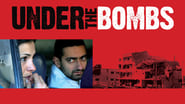Incannerax
What a waste of my time!!!
Laikals
The greatest movie ever made..!
Ameriatch
One of the best films i have seen
Voxitype
Good films always raise compelling questions, whether the format is fiction or documentary fact.
FilmCriticLalitRao
It is not possible for human beings to show same emotions on all occasions.In life there are moments when drama becomes comedy.This is exactly what happens in French film "Sous Les Bombes" /Under the bombs. This is a comedy based on richness of human experiences during times of war when people try not to lose their heads over small matters.This is a film which has adopted a convenient road movie format to communicate its message of peace and harmony.It is precisely due to this format that this film's two main characters are able to unwind and reveal their true nature.Director Philippe Aractingi has decided to get his film made during actual times of war.This gives a lot of authenticity to this film. It is due to such a tough yet necessary decision that we get to comprehend atrocities of war.Actors Elham Abbas and Iman Affara play their leading roles with great conviction.To conclude, we can state that "Sous Les Bombes" is a good film but it has its fair share of TV film aesthetics. This is the only drawback of this film.
Baron Ronan Doyle
A film which attempts to draw focus to the civilian side of the ongoing Israel-Lebanon conflict, Sous les Bombes has received commendation for its gritty socio-political commentary. The film employs real footage of the country's devastation in the wake of the 2006 bombing, adding a realistic edge and real-world feeling.The film is the story of a desperate mother searching for her son and sister in war-torn Lebanon. With everybody fleeing North, she can find only one taxi who will take her South to find her incontactable family.Sous les Bombes has one major problem which, for me, made the film almost unbearable at times. Quite simply, it's the wrong medium. This film should be a documentary. The story is insufficiently captivating to negate this feeling and we are subsequently force-fed in an intolerably aggravating manner the director's opinions, disguised as a piece of fiction. There are two scenes which feature our heroine hitting her head repeatedly off the cab window in infuriated frustration, and I really did feel like it was my head being smacked against the glass. Over and over and over again, the characters discuss in a monotonous and relentless way the travesties of war. Now, of course these things are terrible, and the film does make something of an impact in showing us the destruction in these images, but the very fact that this is not a documentary is hard to believe at times. "Our families are gone, this is terrible, I have no home" is a line heard in different words far too many times for the viewer to keep from ripping every follicle from his head. And the painfully overstated opinions of the film are echoed in the predictable and entirely unsurprising ending. I was completely frustrated for the entire thing.Make no mistake about it, Sous les Bombes carries an important message, but would some subtlety hurt? The plot is tossed aside in order to shove a morality tale down our throats, and the sexually suspect taxi driver comes across as a lazy afterthought. Perhaps even the director realised the film's inherent flaws and made a last ditch effort to spice up the story. In the end, it bears no memorability, and is just plain offensive. Someone please tell Philippe Aractingi to make a documentary next time.End note: The central performance, though even itself irritating at times, earns the film some respect. Thank you Nada Abou Farhat.
jbrooksci
This movie was chosen by filmmovement.com. Often I find the movies they chose to lack heart and leave the viewer bereft in some way. This is the exception. True, the subject matter is devastating. However, the way it is handled is so delicate that it somehow inherently contains a message of hope. I have seen this movie several times, and find that the characters have stuck with me. I've not gotten enough of them.. I want their story to continue. I will, however, caution the viewer: if you don't want your political consciousness raised, you must stay away from this movie. It in no way coerces the viewer; it simply offers such a different perspective, you can't help but be redirected in subtle ways. Well done to the entire cast and crew of this movie.
Genevieve_X
I came across this on cable television in Australia, perhaps not so ironically at the same time that Israel was bombing Hamas in Palestine in January 2009. Possibly a deliberate programming choice - perhaps not. This is an interesting film. Without knowing anything about its production, it is apparent that some of the footage is real, and many of the cast are actual civilians affected during the Israeli-Hezbollah/Lebanon war of 2006. What is central to the film is the developing relationship between Zeina, a woman looking for her son, and Tony, a taxi driver with a colourful past. I must admit I did particularly like that the two main characters are not perfect, and indeed their flaws further serve to foster a sense of identification with them. They are not your usual Hollywood war victims. Zeina is a woman who has sent her young son to the South of Lebanon to escape a messy divorce and supposedly philandering husband. Tony the taxi driver is someone trying to make a spare dollar by selling black market medication and there are several references to a brother with a criminal history in Israel. What I most enjoyed about "under the bombs" was the raw reality of the story and the lack of morality and bias. The victims of all sides of the war are clearly shown and no one is attached to any particular side. Nada Abou Farhat is a naturally beautiful central actor, and I mean "naturally" in that she doesn't present some kind of blow-dried version of war. She is a powerful actor being able to portray the anguish of a mother seeking a lost child. Similarly Georges Khabbaz is a real character - not your sexy leading man - in fact he is a relatively average looking man, not unattractive, but definitely not with stereotyped leading man good looks. He clearly passes as a realistic representation of a Lebanese taxi driver and is quite likable. He really does look the part! Also, the support cast are clearly locals, and I got the sense that many of the stories told were real. The child actors are particularly good.The relationship between Tony and Zeina is interesting, but with some flaws. It is clear that Zeina is a beautiful and quite sexy woman, wearing a figure hugging dress that seems somewhat out of type for the south of Lebanon, but this is okay because it further creates Zeina as a individual ... obviously a woman from the South of Lebanon who has married a 'man of the world' and left her traditional life behind. I wonder whether Tony falls a little into a stereotype of the Arabic male (I would be interested in Arabic men's opinion on this), in that whilst he feels for Zeina's predicament, he sees her as a sexual being. It is often the case that people form intense relationships in traumatic situations, but it is a wonder whether Tony's feelings are totally realistic. In one scene, he is lamenting that Zeina is "a woman looking for her son but who won't acknowledge me!" (paraphasing) when a journalist approaches him for a fare while Zeina is looking for her son. I wondered whether this was a little unrealistic. Would an Arabic man let out emotions like these after knowing a woman for two days? Maybe ... but I wondered whether the romantic relationship was paying lip service to traditional cinematic storytelling. I actually feel the film would've benefited more from this romantic tension being far more 'beneath the surface'.What I did really love about this film was its simplicity. It is a simple demonstration of the suffering of people in war. Zeina's grief, when she finds her sister is dead, is palpable and intense to watch. Similarly, the end of the film is bitter and lends itself towards the reality of war. I would recommend this film as a good example of cinema verite and an important contribution to showing the victims of war in a way that doesn't use the usual soft focus, blow dried Hollywood stereotype. Nice work!Gen_x





